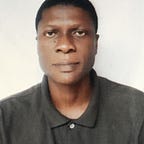Moving from qualification-based certifications to knowledge/skills-based certification
Speaking at the 2018 World Economic Forum, Jack Ma argued that kids would not stand a chance in 30 years competing with machines if educators today do not focus on teaching skills that are uniquely human — independent thinking, collaboration and caring for others. The other big challenge is to develop these uniquely human skills in everybody so that everyone can participate in the workforce of the future.
Between 2012 and 2015, Massive Open Online Courses (MOOC) burst on the educational landscape touted as a potential vehicle to bring high-quality learning to everyone. By 2016, the story changed, yet for many of us, the dream of a means to high-quality education for everyone still resonates. MOOCs mostly failed in their mass-appeal because our societal response to education is to reward those who go through a prescribed path of education and not necessarily those who acquire a skill. Andreas Schleicher in his new book, World Class: How to build a 21st-century school system, brilliantly elaborates this point.
[S]hift from qualifications-based certification systems to more knowledge- and skills-based certification systems. That means moving from documenting education pathways towards highlighting what individuals can actually do, regardless of how and where they have acquired their knowledge, skills and character qualities. I am a good example of this. Many years ago, I acquired my degree in physics, and that remains the qualification recorded in my curriculum vitae. But if I were sent to a laboratory today, I would fail dismally at the work, both because of the rapid advances in physics since I earned my degree, and because I have lost some of the skills that I have not used for a long time. In the meantime, I have acquired many new skills that have not been formally certified. (page 256)
If we are going to successfully compete in the workforce in 30 years, we as a species have to do two things: 1) teach our kids uniquely human skills, and 2) teach those skills to everyone. To achieve this, we can begin by changing the way we think: from documenting education pathways to highlighting what an individual can do. Like Schleicher, I am an excellent example of this situation. Between 2012 and 2015, when MOOCs were on the rise, even though I never completed formal university education, I completed over 330 MOOCs from the best universities in the world. I acquired a lot of knowledge, skills and attitudes including collaboration, communication and inter-cultural skills through learning and occasionally serving as a community teaching assistant in courses with tens of thousands of learners from every part of the world. Looking at my skills, I probably have the equivalent of an MBA from a top-tier university or the equivalent of 5 undergraduate degrees through MOOCs. However, when I complete an application for employment or admission, all I am required to provide as my qualification (or skill set) is my high school diploma earned over 35 years ago.
I want us to change our world. We can. We can start by assessing those uniquely human skills — creativity, collaboration, open-mindedness, social justice, desire to make the world a better place — like PISA (the Programme for Student Assessment) began implementing from 2012 and use this to drive changes in our instruction in schools. We can create new vehicles like massive open online learning experiences to stimulate the twin goals of educating at scale and acquiring knowledge/skills based certification.
Lastly, we can change our practice from one where we list only our educational pathways on our CVs, job descriptions, and LinkedIn; to one where we focus more on listing our skills and knowledge. We can tack on our educational pathway (where or how we acquired those knowledge/skills) as additional info on our skills. Then, we can record not just the knowledge or expertise we gained through a particular educational pathway, which in itself is fast-changing, but also the knowledge and skills we had before, during, and after going through any and every educational and experiential path until the present, which represents a more holistic view of our unique combination of knowledge, skills and attitudes.
